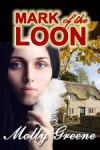This guest post is from Molly Greene who’s superb book ‘Blog It!‘ was instrumental to DyingWords success. I’m so pleased to have Molly’s permission to re-publish this serious advice on sharing blog content. She originally posted this on her blog-site www.Molly-Greene.com .
 I’ve heard that imitation is the highest form of flattery, but that is definitely NOT true not when it comes to re-posting original content that is scraped (taken without permission) from someone else’s blog.
I’ve heard that imitation is the highest form of flattery, but that is definitely NOT true not when it comes to re-posting original content that is scraped (taken without permission) from someone else’s blog.
It’s happened to me, and eventually it will happen to you. I wish I could say I take it in stride, but that would be a stretch.
Yeah, it makes me mad.
Sadly, when I contact re-posters with a request that they take down my content, they always respond that they had no idea re-blogging complete posts was a no-no. Well, not only is it wrong to publish an entire article someone else has written – verbatim, in its entirety, without the originator’s explicit permission – it’s illegal. Even with an attribution crediting the original blogger and a link to the original post.
Copyright: know the law
 All original works have a copyright the minute an individual creates it, and ownership does not require the © symbol or an official registration to be recognized. Copyright applies to all mediums, including print and digital, and protects the interests of the originator by preventing others from using their work without permission. Material posted on the Internet is also covered by copyright.
All original works have a copyright the minute an individual creates it, and ownership does not require the © symbol or an official registration to be recognized. Copyright applies to all mediums, including print and digital, and protects the interests of the originator by preventing others from using their work without permission. Material posted on the Internet is also covered by copyright.
Under U.S. copyright law, a copyright owner can reproduce, distribute, sell, rent, lend, perform, display, communicate and/or adapt the work, and can authorize others to do the same. However, aside from specific circumstances, performing any of these acts without the copyright holder’s permission is an illegal infringement on their rights.
 That means the verbiage in someone else’s site/handout/book/flyer/you name it belongs to them. It is THEIRS. Others cannot legally distribute, reproduce, or share it (that includes re-pasting into Google+) without the originator’s permission. If and when they do, it constitutes an act of plagiarism.
That means the verbiage in someone else’s site/handout/book/flyer/you name it belongs to them. It is THEIRS. Others cannot legally distribute, reproduce, or share it (that includes re-pasting into Google+) without the originator’s permission. If and when they do, it constitutes an act of plagiarism.
Exception
The doctrine of “fair use” allows restricted use of copyrighted material without acquiring permission under these established, specific circumstances: If the reproduction is used for comment, criticism, news reporting, scholarship, teaching, or research. So it’s okay to use a quote for educational purposes (as in your post is using the quote to teach readers something, and the other’s blog post helps explain it). Proper attribution and a link to the original article would still be nice. This publication explains the basics.
5 ways re-posting other bloggers’ content rips them off.
 Bloggers who “borrow” content steal reputation, social authority, money, and time. And, if the perp gives attitude when contacted about it, they’re also stealing somebody’s zen. What else?
Bloggers who “borrow” content steal reputation, social authority, money, and time. And, if the perp gives attitude when contacted about it, they’re also stealing somebody’s zen. What else?
1. The blogger doesn’t get credit for their hard work. “Credit” equals reputation, website traffic, social media shares, and enhanced social authority.
2. The blogger doesn’t get the page views that can help draw potential advertisers and popular guest bloggers. Maybe even literary agents, if they’re interested in going traditional.
3. The blogger (often) doesn’t get the SEO-enhancing benefit of a back link from the blog that’s re-posting.
4.The blogger doesn’t get the siphoned-away readers’ eyes on their books or products or affiliate sale links.
5. The blogger wastes valuable time tracking the culprit down and communicating that they’ve essentially ripped them off.
Bottom line
 Absolutely do not re-post someone else’s full blog post or other content without express permission from the creator. Re-posters should only proceed after they’ve been in contact with the originator, have asked for permission to run the entire piece, and have received the okay. Even then, it’s common courtesy to explain to readers that the article is a re-post, then link to the original blog. Clearly. Where it can be easily seen.
Absolutely do not re-post someone else’s full blog post or other content without express permission from the creator. Re-posters should only proceed after they’ve been in contact with the originator, have asked for permission to run the entire piece, and have received the okay. Even then, it’s common courtesy to explain to readers that the article is a re-post, then link to the original blog. Clearly. Where it can be easily seen.
Note: Google no longer penalizes for duplicate content (in this situation); the search engine determines the post date and gives the originator credit by listing the original article in search results, and not the duplicator. In most instances, anyway.
The right way to link to someone’s post
 When curating content, use only a couple of paragraphs from the original post. Below that, add the verbiage, “Link here to read the entire post,” or “link here to read Twitter Tips For Newbies.” When referring to a downloadable giveaway, direct people to the original blog to obtain the copy. The originator’s site gets the visitor traffic. They did the work, they deserve to reap the benefits.
When curating content, use only a couple of paragraphs from the original post. Below that, add the verbiage, “Link here to read the entire post,” or “link here to read Twitter Tips For Newbies.” When referring to a downloadable giveaway, direct people to the original blog to obtain the copy. The originator’s site gets the visitor traffic. They did the work, they deserve to reap the benefits.
 When in doubt, ask. Message the blogger on Facebook, tweet them, cruise their blog and find an email address, or contact them/leave a comment on their blog. Some bloggers invite everyone to re-post content. Even then, give credit and a link to the post so they get the benefit of link-building.
When in doubt, ask. Message the blogger on Facebook, tweet them, cruise their blog and find an email address, or contact them/leave a comment on their blog. Some bloggers invite everyone to re-post content. Even then, give credit and a link to the post so they get the benefit of link-building.
Want to find out if people are re-posting your content?
Content Scrapers – How to Find Out Who is Stealing Your Content & What to Do About It. Quote: “Content scrapers are websites that steal your content for their own blogs without your permission.”
Approaching re-posters
My friend Tammy Salyer shared a generic letter she uses to contact re-posters. You can read it here.
Additional resources
Content Curation: Copyright, Ethics & Fair Use. Quote: “Best Practice #1: Reproduce only those portions of the headline or article that are necessary to make your point or to identify the story. Do not reproduce the story in its entirety.”
How To Copyright A Blog in 3 Easy Steps
The Copyright Symbol, Misunderstood: 4 Common Myths That Hurt Your Blog



